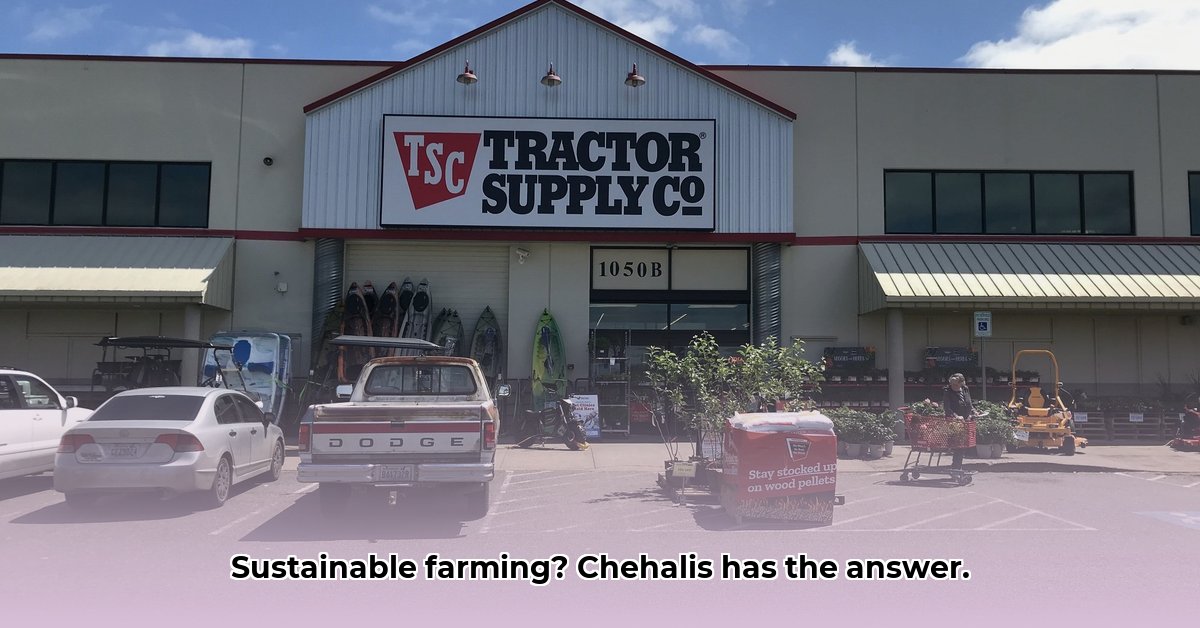
Tractor Supply in Chehalis: A Local Hub for Sustainable Agriculture?
Tractor Supply Company (TSC) in Chehalis serves as a significant resource for local farmers and gardeners. Its accessibility and wide product range offer convenience, but its role in promoting sustainable agriculture requires closer examination. While TSC offers many products used in sustainable practices, a lack of readily available data regarding their own sustainability initiatives hinders a complete assessment. For more information on pet-friendly policies, visit Tractor Supply's pet policy. This article explores TSC's current contribution and identifies key areas for improvement.
Convenient Access, but is it Sustainable?
TSC's extended hours and central location provide undeniable convenience for busy farmers and gardeners. This accessibility translates to efficiency, allowing more time for actual farming and gardening. However, convenience alone does not equate to sustainability. The critical question remains: what is the environmental impact of the products TSC sells? This requires a deeper dive into their sourcing, manufacturing processes, and overall supply chain.
Product Range: Variety vs. Sustainability
TSC stocks a broad range of products, from seeds and fertilizers to animal feed and equipment. This variety is beneficial, offering a one-stop shop for many agricultural needs. However, the lack of readily available information regarding the sustainability certifications and sourcing of these products represents a critical knowledge gap. Are their fertilizers organic? Are their seeds sourced sustainably? How environmentally friendly is their packaging? These questions need transparent answers.
Transparency and Data: A Critical Need
A significant limitation in evaluating TSC's sustainability efforts is the lack of readily available, detailed data on their environmental footprint in Chehalis. Key metrics such as water conservation, pesticide reduction, energy consumption, and waste management are unavailable for detailed analysis in this report. Without this information, it's difficult to gauge the actual impact of TSC's operations on the local environment. A call for greater transparency from TSC is necessary to bridge this gap.
Collaboration for a Greener Future
The path to greater sustainability requires a concerted effort from various stakeholders. TSC, local farmers, and the broader community all play vital roles.
1. Increased Transparency from Tractor Supply: TSC needs to publish detailed sustainability reports, including specific metrics on their environmental impact in Chehalis. This transparency is crucial for building trust and assessing their genuine commitment to sustainability.
2. Enhanced Community Engagement: TSC could organize workshops on sustainable farming practices and offer incentives for farmers adopting eco-friendly methods. Partnering with local environmental organizations would further demonstrate a commitment to the community.
3. Prioritizing Sustainable Products: TSC should expand its selection of organic seeds, eco-friendly fertilizers, and water-efficient equipment. A clear commitment to stocking sustainably sourced products aligns their business with the growing consumer demand for environmentally conscious practices.
4. Sustainable Supply Chain Practices: TSC should prioritize suppliers who adhere to rigorous sustainability standards. Transparency about product origins and manufacturing processes would assure consumers of the company's commitment to environmentally responsible practices.
Moving Forward: A Call to Action
The potential for Tractor Supply to contribute positively to sustainable agriculture in Chehalis is considerable. However, realizing this potential requires a multifaceted approach focusing on enhanced transparency, proactive community engagement, and a resolute commitment to sustainable supply chain practices. The information provided in this report indicates a need for improved communication and increased data availability from TSC to facilitate this progress. Only through collaboration and open communication can we achieve a more sustainable future for local agriculture.